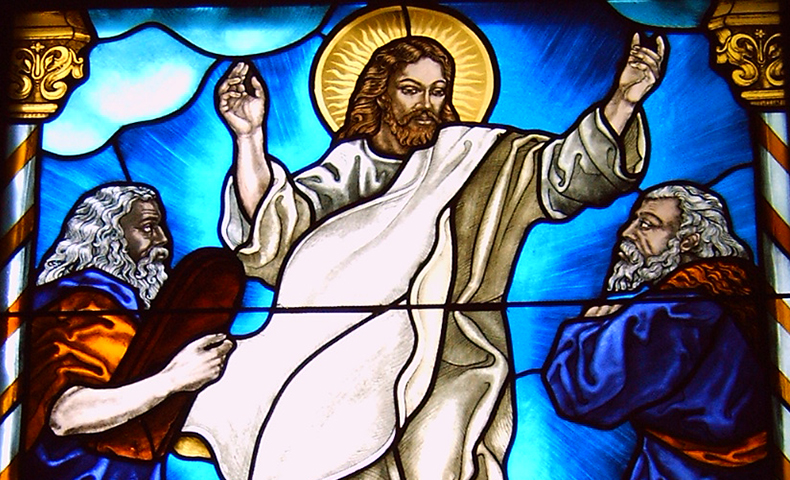Transfiguration of the Lord, Saint of the day for August 6th

The story of the transfiguration of the Lord
All three synoptic Gospels tell the story of the Transfiguration (Matthew 17: 1-8; Mark 9: 2-9; Luke 9: 28-36). With remarkable agreement, all three place the event shortly after Peter's confession of faith that Jesus is the Messiah and Jesus' first prediction of his passion and death. Peter's enthusiasm for erecting tents or cabins on site suggests that it occurred during the week-long Jewish holiday of cabins in the fall.
According to the scholars of the Scriptures, despite the agreement of the texts, it is difficult to reconstruct the experience of the disciples, because the Gospels draw heavily on the Old Testament descriptions of the Sinai encounter with God and on the prophetic visions of the Son of Man. Certainly Peter, James, and John had glimpsed the divinity of Jesus strong enough to strike fear in their hearts. Such an experience defies description, so they used familiar religious language to describe it. And certainly Jesus warned them that his glory and suffering must be inextricably linked, a theme that John highlights throughout his Gospel.
Tradition names Mount Tabor as the site of revelation. A church first erected there in the 6th century was dedicated on XNUMX August. About a feast in honor of the Transfiguration was celebrated in the Eastern Church from that time on. Western observance began in some locations around the eighth century.
On July 22, 1456, the Crusaders defeated the Turks in Belgrade. The news of the victory reached Rome on 6 August and Pope Callixtus III inserted the feast in the Roman calendar the following year.
Reflection
One of the Transfiguration accounts is read annually on the second Sunday of Lent, proclaiming the divinity of Christ to the elect and baptized alike. The Gospel for the first Sunday of Lent, on the other hand, is the story of temptation in the desert - the affirmation of the humanity of Jesus. The two distinct but inseparable natures of the Lord were the subject of much theological discussion early in the history of the Church; it remains difficult for believers to understand.